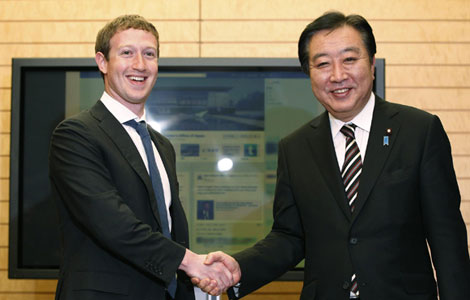 |
|
|
|
|||||||||||
UK's expertise in clean energy production can help China achieve its ambitious emission reduction targets, said Chinese business leaders who came to the UK looking for cooperation opportunities on Tuesday.
"Clean energy is a new and important industry in China, and we came on this trip to look for energy efficient products and technology from the UK that we can purchase or invest in," said Cheng Qi, general secretary of the Machinery Industry Energy and Resources Conservation Centre.
Organised by the UK Trade and Investment, a British government department, the three day trip started with a meeting in London where delegations from China, India and Russia exchanged views with representatives from the British government and British business leaders.
"We learnt some important lessons from the conference," said Cheng.
"The most important thing China needs to learn from the UK in terms of clean energy production is the management skills needed to turn targets into reality," he said, adding that cooperation can take place between governments, trade associations and individual businesses of both countries.
The Chinese delegation will stay in Birmingham on Wednesday and Thursday, meeting local British manufacturing businesses
Paul Calver, a global supply chain specialist from the UKTI, said that the UK can provide much of the energy efficient machinery that Chinese manufacturing companies may need.
"It used to be that Chinese businesses buy machines that are cheap and fit legislation standards. But as energy costs increase, more consideration is given to how much it costs to operate a machine throughout its life.
"It would make sense for them to invest in machines that are more expensive, but save energy costs, and that's where UK suppliers can come in to provide it," he said.
As the first country to experience the industrial revolution, UK also experienced a period of heavy pollution, but the Clean Air Act 1956 forced businesses to upgrade their infrastructure.
"China is going through a big change. Its last five-year plan shows how important clean energy production has become and we hope that the UK's technology and expertise can help China," he said.
China's 12th Five-Year Plan (2011-2015), which was released last March, marked a turning point from China's previous emphasis on headline growth, to focus on sustainable growth.
Over the five years to 2015, China aims to cut the amount of energy and carbon dioxide emissions needed for every unit of economic output by 16 and 17 percent per unit of GDP respectively.
China will also push the use of non-fossil fuels to 15 percent of the country's total energy use by 2020.
Jacqui Mullen, UKTI's consulate-general in Guangzhou, encouraged more British businesses in the clean-tech industry to look for opportunities in China.
She explained that many industries the Chinese government place great emphasis on happen to be ones that British businesses have expertise in, such as building, manufacturing, water management and waste management.
About 100 UK companies attended the conference, and many have expressed a keen interest in breaking into the Chinese market.
Li Qinglin, business development manager of Trolex, a British manufacturer of hazardous gas detection systems and gas detection equipment said that his company is hoping to export products to China.
"We export a lot to the US and Australia, but we believe China is the market with the largest potential for our business," he said.
Although China's focus on clean energy production only gathered momentum in recent years, the UK has expressed a keen interest to help.
Last October, the two countries signed a Memorandum of Understanding (MoU) on Climate Change Co-operation, which intends to increase bilateral cooperation between major polluters of both countries.
Another MoU on Low Carbon Co-operation was signed last January, where Britain offered to share policy expertise in low carbon planning to boost efforts in China's low carbon pilot zones.

|

|

|

|

|

|